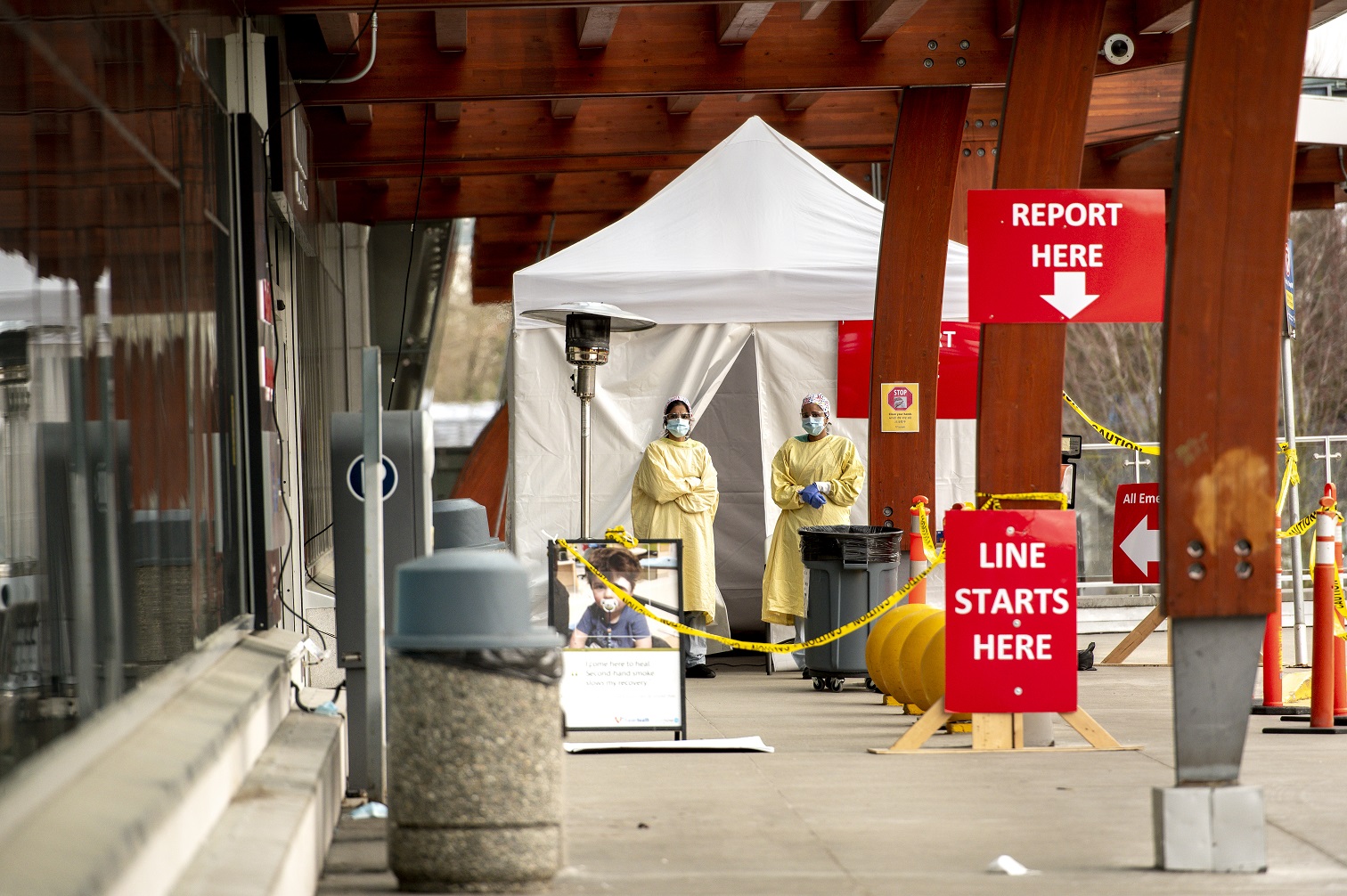In 2020, British Columbians were encouraged to stay home whenever they could. And while there, the numbers tell us, they increasingly visited, subscribed to, supported and commented on The Tyee. We’re so grateful.
We smashed records in many metrics this year. And not just in B.C. — we saw big increases in readership across other provinces and states, too. So thanks to readers old and new for spending some of your alone time with us in these trying times.
Here were the standout stories in a few notable categories:
The stories you spent the most time reading
Evidence of a page view is one thing. But what warms our hearts most at The Tyee is evidence that readers have truly absorbed themselves in one of our ‘long reads.’ To measure this, we rely on quantitative evidence: the average amount of time spent on an article, according to analytics.
Urban planner Amina Yasin’s essay “Whose Streets? Black Streets,” written in the weeks after the police murder of George Floyd in Minneapolis, kept people on the page the longest in 2020.
Contributing editor Andrew Nikiforuk’s “They Call It Wapatraz,” a special investigation about pollution at a northern Alberta work camp, kept readers entranced almost just as long.
And Nikiforuk’s “Shell Game,” about a cowboy who fought and won against those that leave behind orphan wells in Alberta, followed that.
Just after Nikiforuk’s duo was a post-B.C. election analysis roundup compiled by Tyee founder David Beers and associate editor Olamide Olaniyan, “So, What Does BC’s Election Outcome Really Mean?”
Contributors to that piece included Tom Hawthorn, Karen Tam Wu, Max Cameron, Steve Burgess, David Moscrop, Andy Yan, Mazdak Gharibnavaz, Megan Dias, Karen Ward, Khelsilem, Alex Shiff, Todd Hauptmann, Mario Canseco, Chuka Ejeckam, Bill Tieleman, Richard Johnston, Meenakshi Mannoe, George Abbott and Sonia Theroux.
The next longest read was Mark Saltveit’s account of how Portland got so good at fighting for democracy, “Letter from Portland: Mom Is Pissed at Trump’s Secret Police.”
And last in the longest-read category was Megan Stewart’s “Tearing Down Our Monumental Mistakes,” which considered what to do with the bronze idols that citizens want toppled.
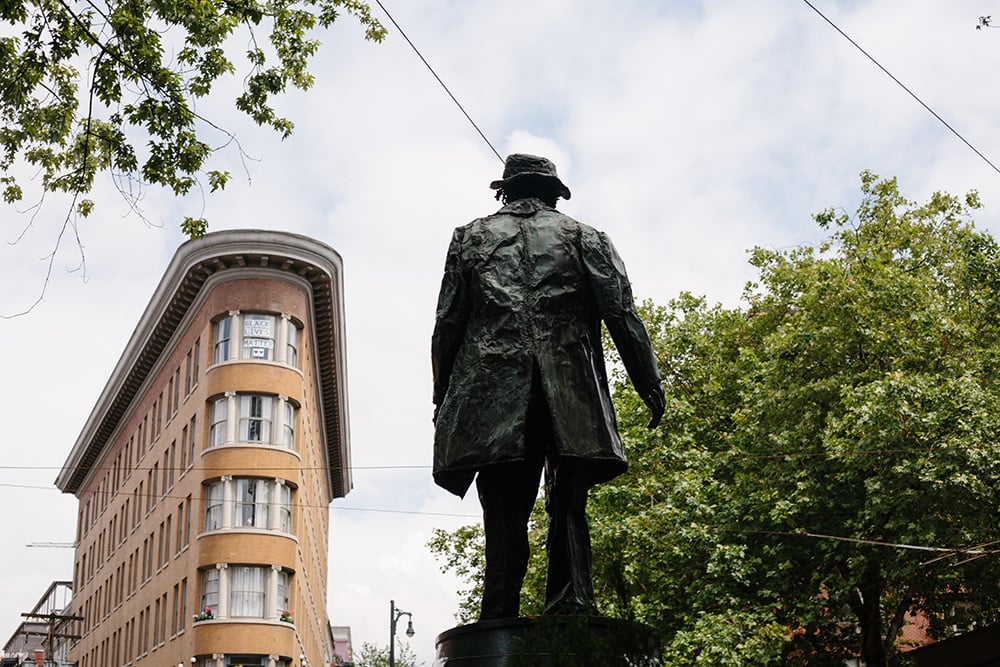
The stories you shared the most
Back in the old days when we had society, The Tyee had a tradition of requiring writers who broke the rare 10,000 mark on our article “share” counter — a tally of reactions on Facebook, Twitter and our email-to-a-friend tool — to wear a fake pearl necklace and crown that’ve floated around our office since editor-in-chief Robyn Smith’s 30th birthday.
This year, you’d be lucky to hold the pearls-owning honour for more than a week before you were dethroned, the way that sharing of our stories has increased.
And the odds were good that the usurper would be Andrew Nikiforuk, whose ominously titled April 2020 article “We Are in a New Danger Zone” about COVID-19 unknowns is today on the cusp of setting a new gold standard of 100,000 shares.
(Sorry that I’m not sorry about the Top Gun soundtrack earworm that headline may have planted in your head.)
But “Danger Zone” will only initiate that milestone if Nikiforuk’s equally arresting and prescient essays, “Even a Vaccine Won’t Erase this Pandemic,” or “Canada Chooses Colonialism Again,” on the RCMP raids of Wet’suwet’en camps earlier this year don’t break 100,000 shares first.
Keeping Nikiforuk from sweeping the category were Amanda Follett Hosgood’s breaking story of an industry oil spill on Wet’suwet’en territory, and William E. Rees’s essay “The Earth Is Telling Us We Must Rethink Our Growth Society.”
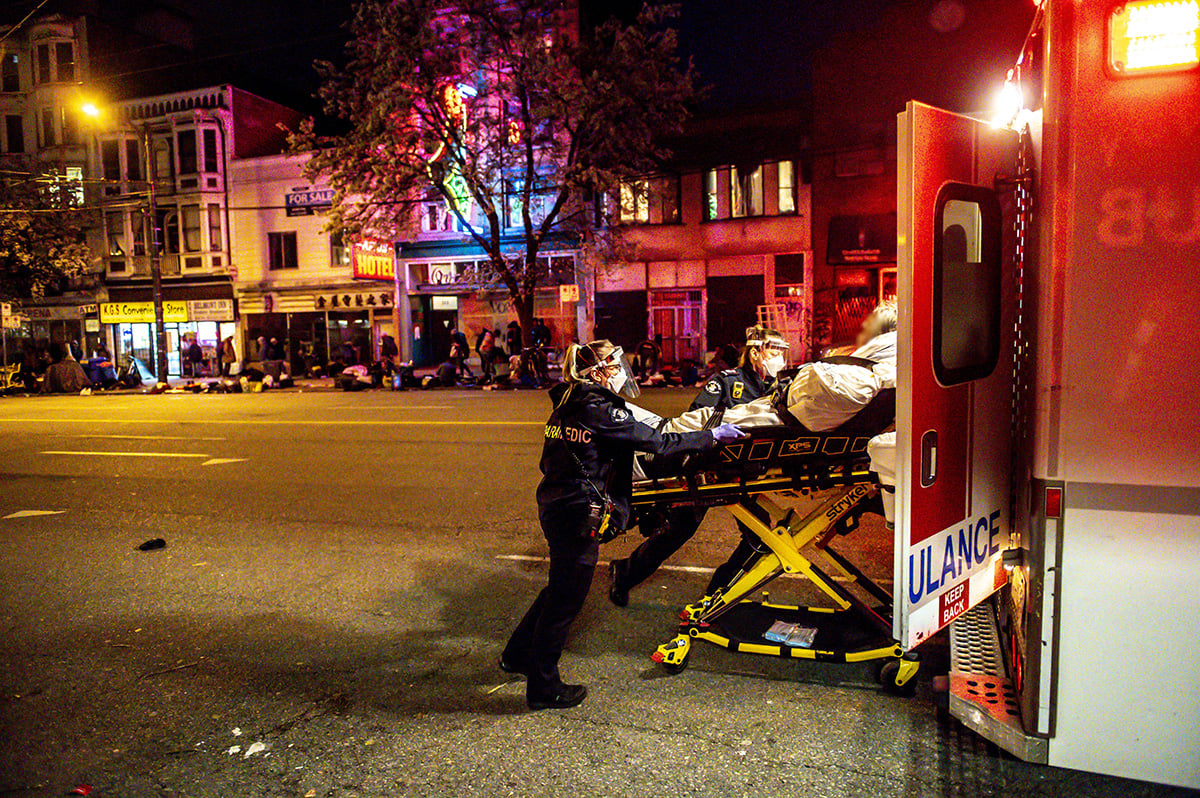
The story that inspired the most comment chatter
Before the snap B.C. election in October, former Tyee columnist Bill Tieleman offered “A Word to Progressives Who Want to Punish the NDP,” which was actually just shy of 1,800 words on why the alternatives to the incumbent BC NDP government were worse. He warned readers not to vote impulsively.
Tieleman received 420 comments on his opinion piece, largely mixed reactions. Oh, and the NDP won.
Just shy of that, receiving 417 comments, was contributing editor Michael Harris’s article “‘Like Churchill,’ Bring Harper Back to Lead Tories, Urges Riding President.”
Contributing editor (and historian, epidemiologist, science-fiction chronicler, I could go on...) Crawford Kilian also invited many comments with his op-ed “We Should Consider Changing the Name of British Columbia.”
The piece elicited 368 better or worse names proposed by Tyee readers, all unrelated to Christopher Columbus.
Michael Harris’s contemplation of “Why Trudeau’s Circus Act May Not Survive the Blockade Crisis” was the next most commented article of 2020. The piece asked whether the (then pre-pandemic approval-surge) federal Liberals could survive events in B.C. that kept knocking the prime minister off balance.
To round out the category, Tyee reporter Geoff Dembicki’s story, “This Energy Analyst Says the Oilsands Are ‘Done’” invited over 300 speculative comments on Alberta’s energy future.
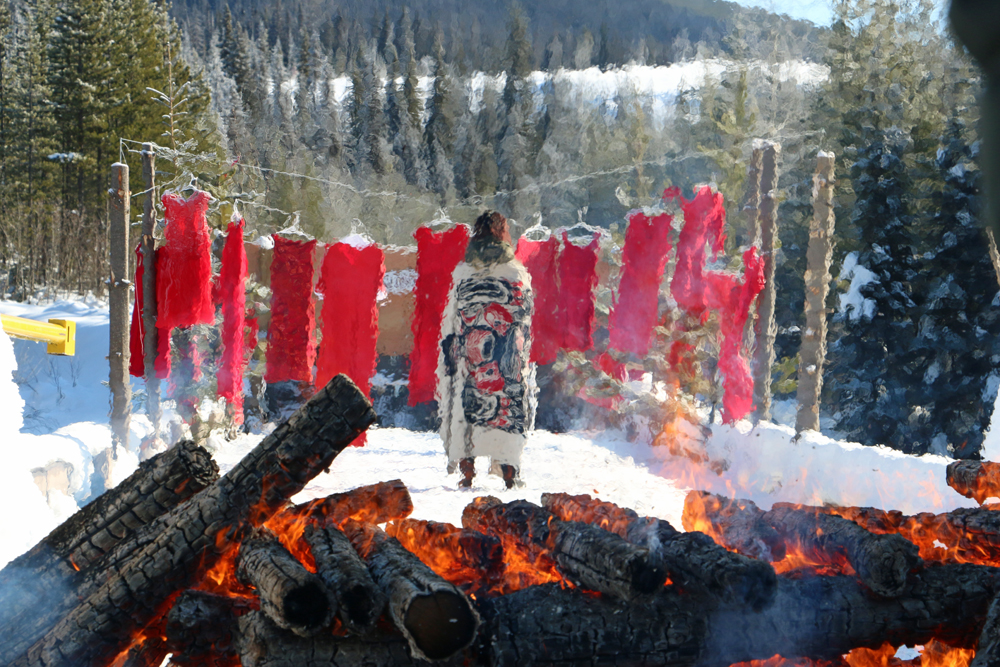
The story you found most fit to print
Reporter Katie Hyslop’s explainer, “Wet’suwet’en Crisis: Whose Rule of Law?” was found the most printer-worthy, according to measure of clicks on the (recently fixed, sorry, print lovers!) “print” icon found at the top of our story pages.
Chasing that was reporter Jen St. Denis’s “Here Comes the Sweet Grass Patrol,” on an Indigenous-led effort to help people living on Vancouver’s streets find housing and help.
Meghan Bell’s essay “Talk Is Cheap: On Capitalism, Mental Health and Taxing the Rich” held Bell Canada to account for its record in the midst of its annual “Let’s Talk” campaign for mental health. And it inspired hundreds of printouts.
Hundreds of would-be stoics cared enough to print out Andrew Nikiforuk’s essay “Now Would Be a Good Time to Get to Know the Ancient Stoics,” published just before the first wave of COVID-19 fatigue set in last April.
Capping off the fit-to-print category was columnist Judith Sayers’ (Kekinusuqs) account of a B.C. Supreme Court ruling on teaching Indigenous culture in classrooms, “Why the Nuu-chah-nulth Fought a Classroom Smudging Case, and Won.”
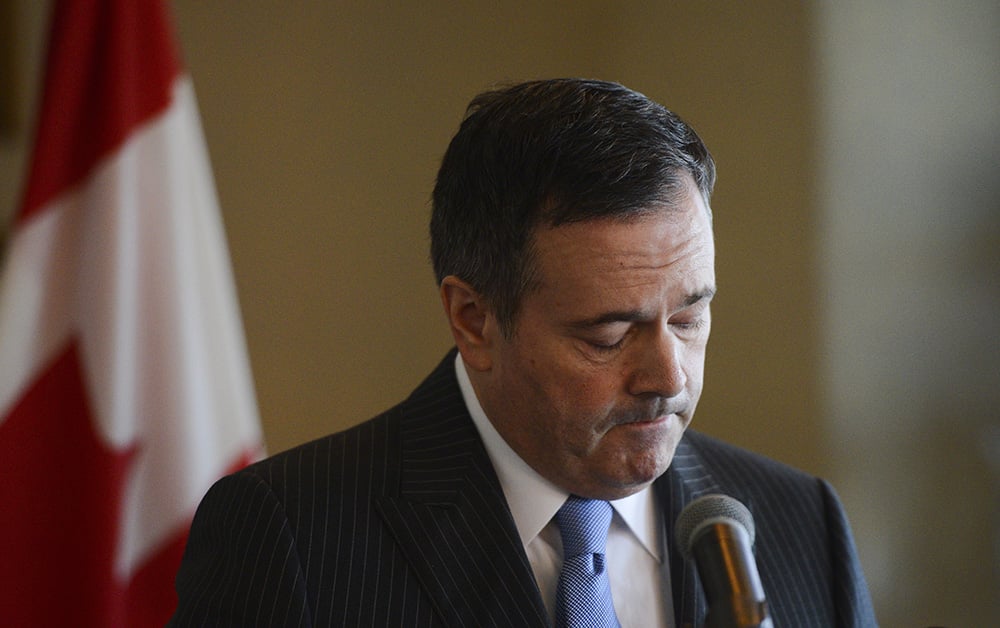
And drumroll please... the most read Tyee stories of the year
Andrew Nikiforuk’s “We Are in a New Danger Zone” and “Even a Vaccine Won’t Erase this Pandemic” essays smashed the most-read category this year, netting over a half a million views between them.
After that, Crawford Kilian’s write-up on “Dr. Tam’s Bold Diagnosis of What Ails Canada” charted next among the most read in 2020.
Kilian wrote about an important and “potentially revolutionary” report by chief public health officer Dr. Theresa Tam, but predicted it was “likely to go unnoticed until future governments study it.” (Still, tens of thousands of readers pored through Kilian’s summary of the report.)
Nikiforuk’s “Ignoring US Alarms, Alberta Meat Packers Spawned Canada’s Biggest Outbreak” captured the next largest number of eyeballs in 2020.
Just behind that was Shana Myara’s essay “My Wife Is Disabled. BC Ferries Left Us Out to Sea,” about the ferry system’s ban on allowing people to remain in their cars on lower decks during the pandemic.
Next was Michael Harris’s “Game Over for Kenney,” about how Alberta Premier Jason Kenney lost his go-to excuse for Alberta’s misfortunes: the federal government.
Nikiforuk’s “Alberta Government Fines Hunter for Trespassing on Australian Coal Lease” report in late December is still racking up reads even as it lands in the next most read slot of the year.
And finally, we can cap off the category, and our annual roundup too, with the next most read of 2020: my own investigation based on some 3,000 documents painfully extracted from the RCMP, “‘You Have Zero Privacy’ Says an Internal RCMP Presentation. Inside the Force’s Web Spying Program.”
Thanks again for reading, sharing and engaging with The Tyee in 2020.
Dear Tyee readers: comments are closed until Jan. 4 to give our moderators a much-needed holiday break. Best wishes to you and yours. ![]()
Read more: Media




